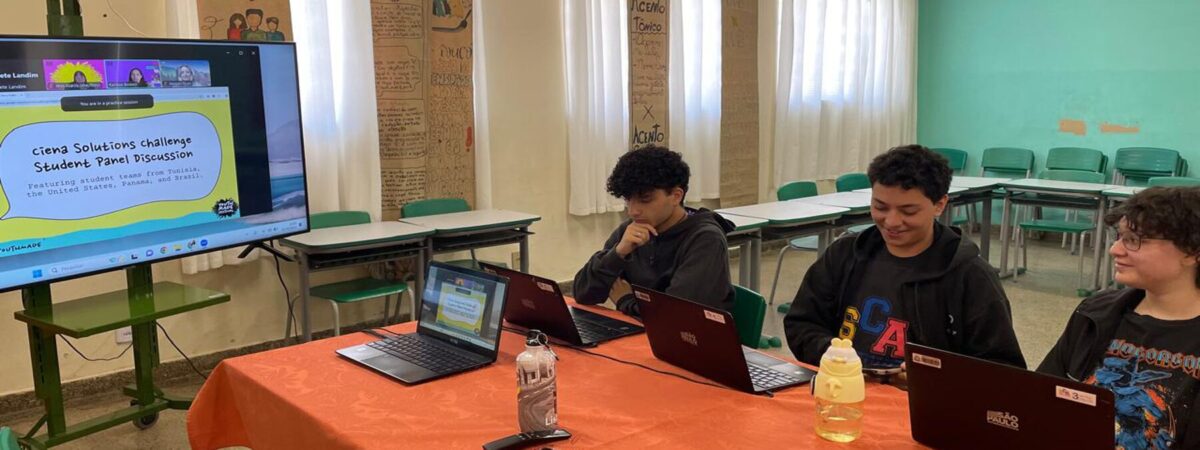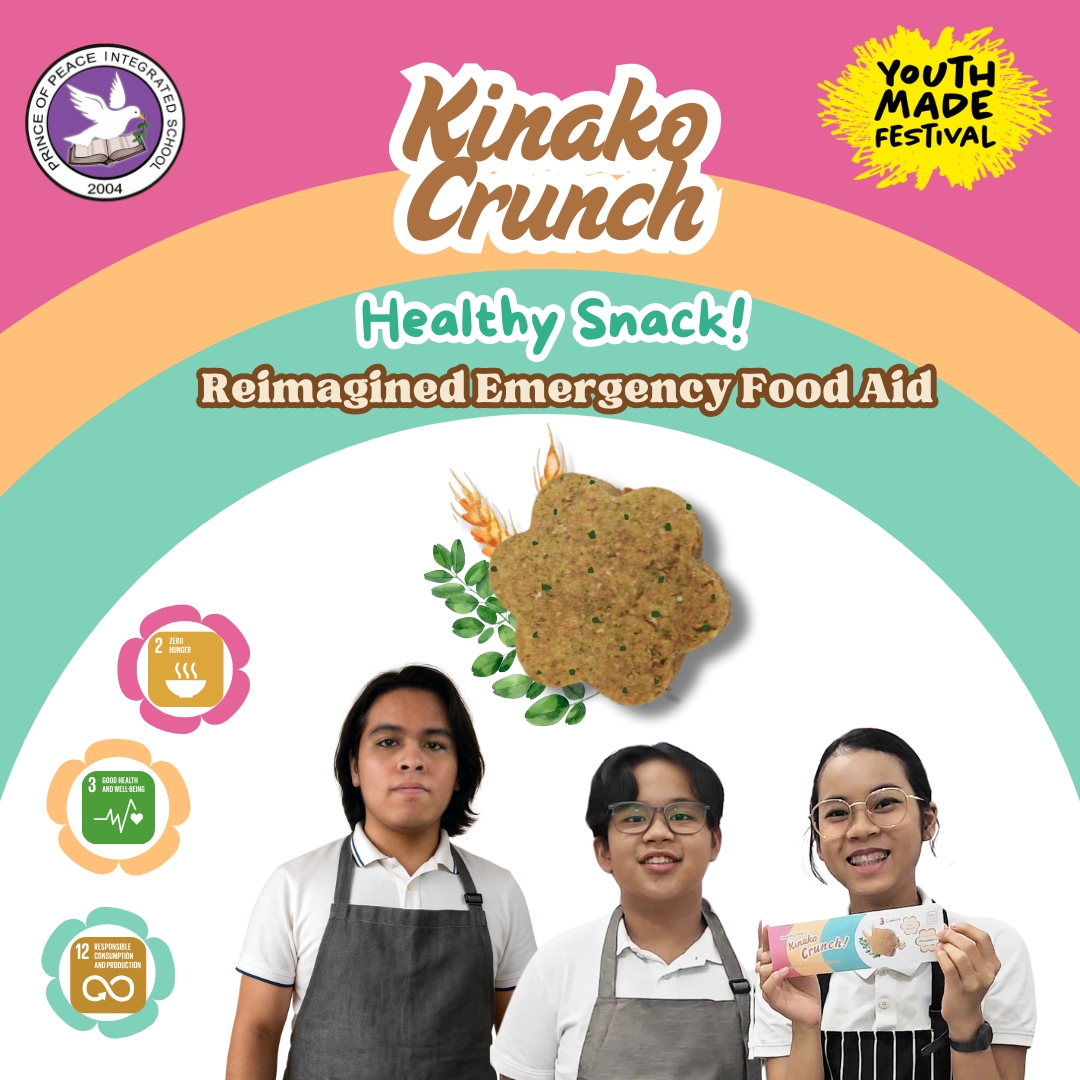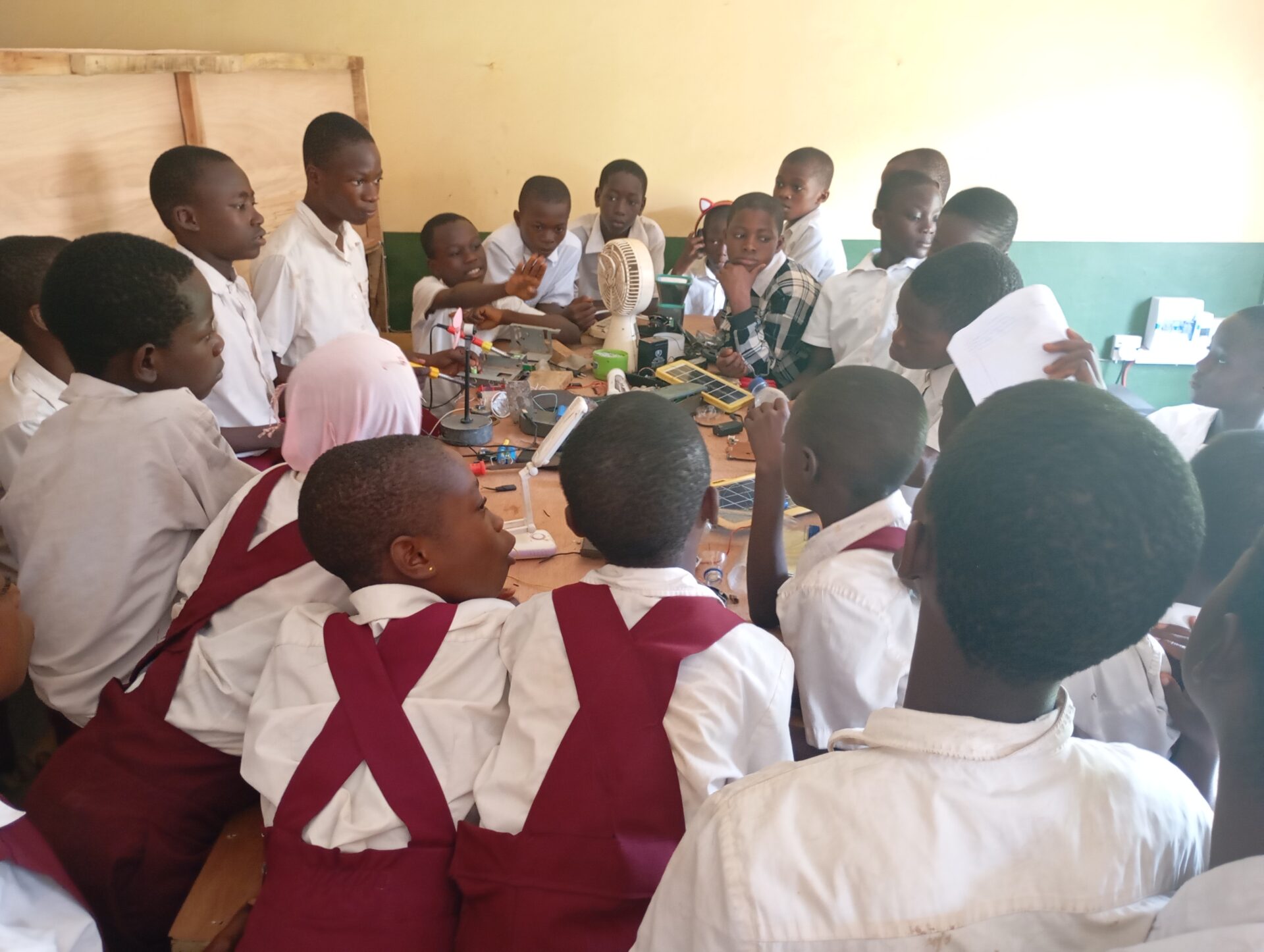
During the YouthMADE Festival, student teams presented their stories and engaged with other student teams and Ciena employee volunteers. Each panel showcased solutions for building a better world while sharing the lessons they learned from their individual project journeys.
Similarly, a student team in Tunisia addressed the global challenge of waste management and recycling inefficiency with their project EcoCycle, an AI-powered app that identifies recyclable and non-recyclable waste, sorting it automatically and sending alerts when recycle bins are full.
“Our goal is to build a strong recycling mindset, especially in the younger generation, by making recycling a habit that feels rewarding and even exciting.” – EcoCycle team

EcoCycle team presenting their project at Les écoles idéales.
Another global team in India developed the Empowering Vision project, an innovative Braille-based learning system to make reading more interactive for people who are blind or deafblind. The team’s goal is to expand accessibility beyond audio or basic tactile tools by integrating modern technology and design thinking into inclusive education.
Through their ongoing efforts, these student teams demonstrated how youth are actively taking action to make a positive impact by addressing the U.N. Sustainable Development Goals.
An additional inspiring theme emerging from this year’s panels was how students addressed issues of health and equity through community-centered design. In the Philippines, students created a nutrient-dense cookie, Kinako Crunch, to tackle food insecurity and emergency preparedness. Inspired by the country’s need for better storm relief nutrition, this project reimagined emergency food aid with an engaging and innovative product design.

Student team and their creation Kinako Crunch.
With the same goal in mind, a student team in Nigeria started their project Students Rise: Pads, Peers, and Progress aimed to solve critical issues of menstrual absenteeism and mental health challenges in their rural community. This team took initiative in student-led pad making, peer support circles, and radio advocacy campaigns. When the audience asked this team what advice they could share, student Fatima I., responded, “Be open to feedback, take risks, and learn from your mistakes. Stay focused and surround yourself with a supportive team.”
In São Paulo, Brazil, a team selected illiteracy as an issue they wanted to address in youth and adult education. They created a project that encourages enrolled young people and adults to overcome difficulties linked to functional illiteracy through alternatives such as digital inclusion, sustainability, and entrepreneurship.
Together, these teams demonstrated youth-led innovation rooted in their community’s future and well-being.
We also heard from teams stepping up to protect the climate. In Nigeria, students face challenges of electric power failure, waste accumulation, and unclean energy use, so they created their project Sparkwise Tech Initiative. They designed and built torches, lanterns, fans, and blenders using locally-sourced waste materials and repaired more than 50 damaged appliances, restoring them for community use. When this team was asked about one lesson that was realized during the Challenge, student Bakare O. responded, “We realized that the environmental problems are linked to social issues. Our clean energy project, empowered by girls, youths, and people with disabilities through skill and income opportunities creating inclusive, lasting impact.”

Sparkwise Tech Initiative team in a project meeting.
In Kazakhstan, students were concerned about water pollution and plastic waste in their community. They took an innovative approach for a solution by designing a smart bottle called AQSU. Built with sensors and monitors, AQSU shows real-time water quality data, while the nano-filter purifies water instantly.
We continue to be amazed by global teams collaborating on projects. One student team located in California in theUnited States, teamed up with students from the Colegio Militar de Manaus in Brazil to create the project Replenishing Our Forest with Evapotranspiration. With guidance from students in Brazil, they were able to design a prototype that would reduce the amount of human waste, replacing septic tanks, reduce carbonyl sulfide (COs) emissions, use the biomass from the toilets to plant, and grow endangered plants or trees.
To hear and watch insights from the teams who participated in the Ciena Solutions Challenge panels, we invite you to explore the recordings available in our 2025 YouthMADE Festival playlist.
Visit the Ciena Solutions Challenge Gallery to learn more about these and other students’ projects. Educators and youth interested in getting involved can register to learn more about the next round of the Ciena Solutions Challenge. The submission portal for the 2025-2026 Sustainability Awards program will be open from Sept. 2025 to March 2026.
To stay connected, follow the YouthMADE Festival on Instagram for updates, upcoming events, and more!